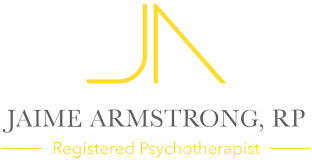
Life Improvement Therapy revisits role of digital
This past February, a month before the pandemic shuttered businesses across the country, Jaime Armstrong got a request from a potential client in Ottawa.
They’d heard about the psychotherapist’s Wasaga Beach and Midland-based practice Life Improvement Therapy and were interested in becoming a patient. The problem was, they couldn’t make it down from Ottawa for the first session so they wanted to work through’s Armstrong’s Rapid Resolution Therapy online.
It was a non-starter for Armstrong.
“I turned them down… I said, no – it's really better in person,” says Armstrong. And that was that. For two years the psychotherapist had been built around that in-person connection. The first session must always be in-person. “I set up two years of networking and going out and meeting chiropractors and naturopaths and really doing all this in-person stuff and it was great because that's where all my referral sources are coming from.”
And that was how it needed to be. But the pandemic changed that. The streets became quieter and people stopped venturing out. All of a sudden Armstrong’s resistance to working with patients online felt like it was holding her back from opportunity.
The Life Improvement Therapy owner wasn’t a complete digital neophyte. She’d decided back in the fall after connecting with Digital Main Street, a program that combines grants and one-to-one support from the Province of Ontario and the Ontario BIA Association to help main street businesses strengthen their online capabilities, that the internet was going to play a bigger role on the referral side going forward. But it wasn’t until the pandemic that she realized how big that role would be.
“(With) COVID, all of my networking, all my referral sources, they're still there, but all those businesses are closed and they're not seeing people so I don't have that source anymore,” says Armstrong. It’s caused her to fast track her Digital Transformation plan (a component of the program which gives small businesses a $2,500 grant and online training).
She says prior to Digital Main Street she had no interest in social media and she had a steep learning curve when it came to the nuances of digital identity. “I can clear trauma in one session. I can eliminate someone's anxiety, I can restore people's whole brain power and give them their lives back in this more optimized way,” says Armstrong. “But you want to talk to me about SEO or backlinking or content marketing – I don't know a thing, so getting to learn all of that was so useful.”
Armstrong says that while her website doesn’t need much to be effective, all of this just amplifies it. “(It) allows me to spread my message farther and larger and it just makes it more exciting to get to do what I'm doing.”
She’s also changed her position about that first in-person session. “The only way I'm practicing now is online,” says Armstrong. “And it's going to continue even when I can meet with people again in-person… out of necessity, there's so much growth.”
Written by Andrew Seale
Digital Main Street a été créé par la Toronto Association of Business Improvement Areas (TABIA), avec la contribution directe de la Ville de Toronto. DMS est aussi appuyé par plusieurs partenaires d'affaires stratégiques comme Google, Mastercard, Shopify, Microsoft, Facebook, Intuit QuickBooks, Square, Pages Jaunes et Lightspeed.
This case study was completed during a prior expansion of DMS in partnership with the Province of Ontario and Ministry of Agriculture, Food and Rural Affairs.
In June 2020, a $42.5-million investment from FedDev Ontario and an additional $7.45 million from the Government of Ontario brought together the Toronto Association of Business Improvement Areas, Communitech, Invest Ottawa and the Ontario Business Improvement Area Association to expand the Digital Main Street Platform in order to support more businesses going digital as a response to the impacts of COVID-19.
